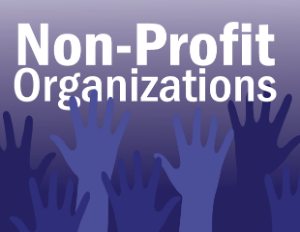If you have a desire to change the world, check out these tips

(Image: paysimple.com)
Do you have a desire to start a non-profit organization? If so, beyond your passion to help others and make a difference in the world, non-profits have to be run like any other business. Although profit is not a driving factor, there are organizational processes, tax rules, and laws that must be followed. From establishing a board of directors to help create long term plans and carry out fundraising activities to enlisting marketing and human resources support to execute public relations campaigns and monitor compliance, there is a lot that goes into operating a non profit.
[Related: The Million Dollar Cut: 6 Success Tips of a Barber]
At the most basic level, the US Small Business Administration offers these tips to get you started.
- Do Your Market Research – With over 1.4 million non-profits nationwide, can you state categorically that your chosen non-profit niche is unique? Here are some examples of questions you should be asking yourself to help identify your niche and whether there is a market need. You can also research existing non-profits at guidestar.org.
- Write a Business Plan – Since a non-profit is simply another version of a business, you’ll need to develop a solid business plan and steer its implementation. A business plan is essential for procuring non-profit funding from donors and the government, and can also help you recruit volunteers and board members. Get help with your non-profit business plan here.
- Incorporate Your Non-Profit – Becoming a non-profit corporation requires some paperwork, but for many groups the benefits of non-profit status – such as 501(c)(3) tax-exempt status – outweigh the complications. Here are five reasons to incorporate your non-profit association. Incorporation for non-profits is very similar to creating a regular corporation except that you have to take the extra steps of applying for tax-exempt status with the IRS and their state tax division.
Once your organization is up and running, you’ll need to plan for longevity. When it comes to building a sustainable non-profit organization, Kwayera Archer-Cunningham knows a thing or two about what it takes to grow a non-profit. In 1989, she founded Ifetayo Cultural Arts Academy, an organization dedicated to supporting the creative, educational and vocational development of youth and families of African descent in Flatbush, Brooklyn and surrounding communities.
Starting out with only one teacher and a minimum budget, Cunningham increased her organization’s capacity to 10 full-time staff members and 33 part-time faculty members with an operating budget of 2 million and a steadily growing cash reserve. Having recently celebrated her organizations’ 25th anniversary, she offers 3 pieces of advice on staffing, leveraging community support and funding.
- Be very clear about the vision. Establishing a vision and mission about how you are going to go about accomplishing the change you wish to see in the world. With this as a very clear starting point and a non-negotiable path that will lead you toward your destination, you will always have a check and balance to keep you clear if these two pieces are at the core of every step you take.
- Secure free resources. Getting ongoing free technical assistance is critical for continued growth. Private consultants or places like lawyers alliance of New York, Community Resource Exchange, Non Profit Finance fund, fiscal a management associates and cause effective are just a few where low to no cost high level assurance can be secured for developing your non profit to operate at an optimal level.
- Surround yourself with volunteers and board members. Your team should have a connection to the mission and be able to contribute their skills to building of the mission. You should also make sure you engage all aspects of community such as your local businesses, houses of worship, community service organizations, residents, legislative members and schools. All of them are critical in building a strong organization that really empowers an entire community.
Do you have any tips on starting a non-profit organization?
Source: BLACK ENTERPRISE





